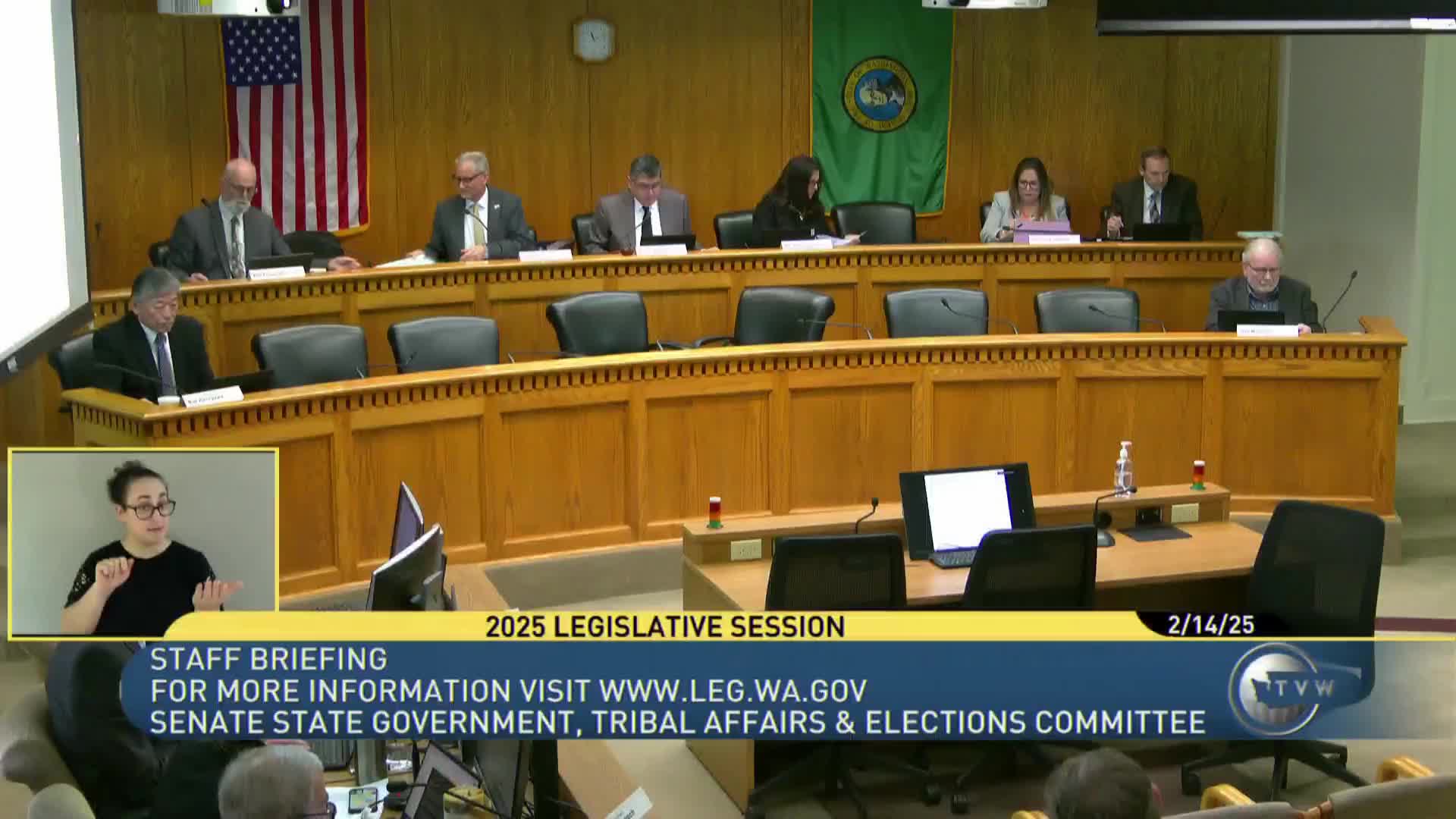Senate hears 'Balance Act' to give legislature a role in terminating declared emergencies
Get AI-powered insights, summaries, and transcripts
Subscribe
Summary
Senate Bill 5,434 would let the legislature terminate a governor-declared state of emergency by concurrent resolution when in session and allow the four legislative leaders to terminate it in writing after 90 days if the legislature is not in session; bill would also apply existing 30-day limits to statutory-waiver orders.
Senate Bill 5,434, described by sponsor Senator Keith Wagner as the "Balance Act," received a public hearing on Feb. 14 in the Senate State Government & Elections Committee. The bill would authorize the legislature to terminate a governor-declared state of emergency via concurrent resolution when in session, and would permit the majority and minority leaders of the Senate and the Speaker and minority leader of the House (the four leaders) to terminate a state of emergency in writing when the legislature is not in session and the emergency has continued for 90 days.
The bill also applies the existing 30-day statutory limit to gubernatorial orders that waive or suspend statutory obligations or limitations, so such waiver orders would automatically expire after 30 days unless extended by the legislature under the same procedures that now apply to prohibition orders. Committee staff summarized current law: governors may issue orders that prohibit activities (for example, public gatherings) and orders that waive statutory requirements; the latter currently require extension by the legislature (if in session) or by leadership outside session under existing statute for certain categories of orders.
Senator Wagner framed the bill as preserving urgent executive action while restoring legislative oversight after the acute phase of an emergency: "This is the balance act and, I think every high school student and newly minted citizen understands that our government is based on checks and balances," he said. The sponsor emphasized the bill "does not change the actions the governor may take" during the initial emergency; it only limits how long those actions remain exclusively under the governor’s unilateral authority.
Staff and members discussed how similar limits have been enacted in other states since 2020; committee staff cited Virginia (which limits executive orders to 45 days without legislative action) and Arizona (an initial proclamation limited to 30 days with further extensions subject to legislative approval). Committee staff offered to compile additional comparisons and to report whether other states require special majorities for legislative termination.
Several committee members asked detailed questions about mechanics and judicial or administrative consequences. Senators raised concerns that, in practice, a single majority caucus could block an extension during session and that outside of session the written four-leader agreement (the "four corners" practice) might give a small number of leaders outsized influence. Committee staff clarified that during a session the bill would require concurrent resolution from both chambers and that outside session extensions require written agreement from all four leaders; if the leaders do not provide a written statement, the order would not be extended.
The governor’s office (represented by Nathan Bays, deputy policy director) testified in support and requested two technical changes shared with the sponsor: (1) include a role for the Military Department to inform the legislature of impacts or consequences of ending a state of emergency, and (2) align the duration of emergency actions to the duration of the state of emergency (so waiver orders do not outlast the emergency). The governor’s office said those changes had been discussed with the sponsor and provided to committee leadership.
A broad set of stakeholders testified in favor of the bill or in support with reservations. Former Senator Linda Wilson (sponsor of an earlier related bill) supported restoring legislative authority, saying passage would "restore checks and balances between all branches of government." Business and industry groups including the Washington Policy Center, Associated General Contractors, NFIB, and the Association of Washington Business voiced support, citing the need for legislative oversight on budgetary and regulatory actions during prolonged emergencies. Former Cowlitz County Sheriff Mark Nelson and other local-government or first-responder witnesses said incident-management models and multiagency coordination support the bill’s intent to bring more voices into the post-acute phase of a crisis.
Some testifiers and commenters raised concerns that the bill does not go far enough or that language about out-of-session termination and extensions should be clarified. Testimony from Jeff Pack (Washington Citizens Against Unfair Taxes) and others urged clearer statutory language about what constitutes written agreement by the four leaders, and a minority of speakers described the bill as a small incremental change rather than a comprehensive fix.
No committee vote on SB 5,434 was recorded in the hearing; the item was heard as a public hearing and no committee disposition is shown on the record.
The bill’s sponsors and staff agreed to follow up with additional state comparisons, and the governor’s office requested statutory language to ensure Military Department consultation and alignment of action duration with the declared emergency period.
